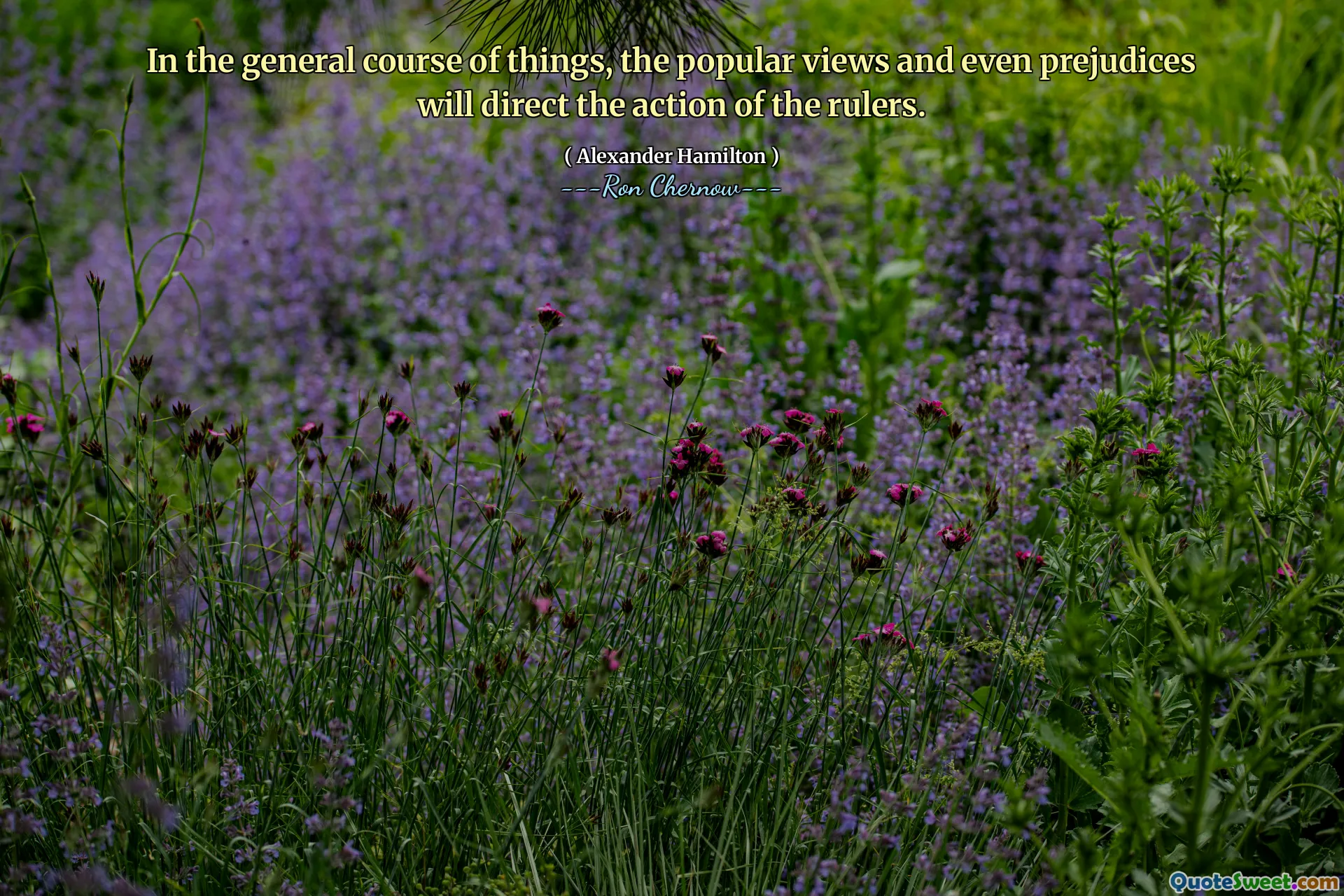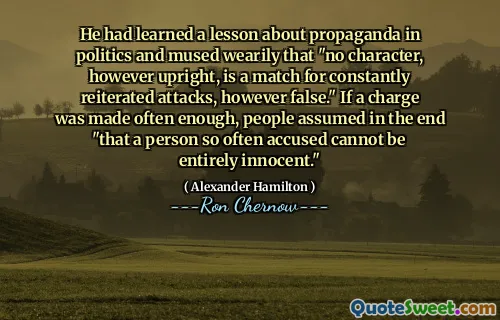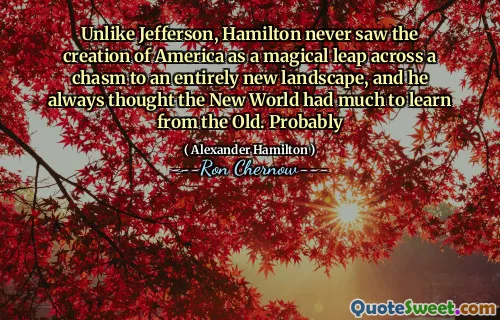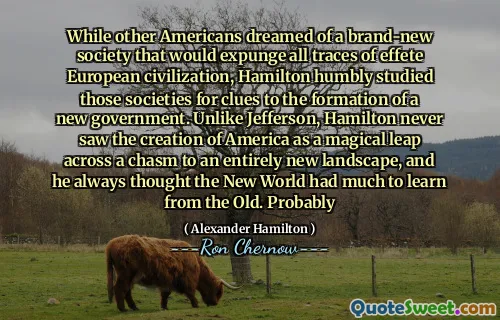
In the general course of things, the popular views and even prejudices will direct the action of the rulers.
This quote by Alexander Hamilton, as noted by Ron Chernow, offers a profound insight into the dynamics between public opinion and governance. It highlights the inevitable influence that popular views — and even biases — hold over the decisions made by those in positions of power. This underscores a fundamental aspect of democratic systems, where rulers, regardless of their own intentions or ideologies, often have to respond to the collective will or sentiment of the people they govern for legitimacy and survival.
The message draws attention to how leadership cannot be entirely independent or detached from the societal mindset. Even when leaders attempt to impose their own vision, ingrained prejudices or popular consensus create a framework within which political actions occur. This can be both empowering and limiting: on the one hand, it encourages rulers to remain accountable and disruptive to social currents can be politically costly. On the other hand, reliance on popular sentiment can perpetuate biases and social divides, rather than correcting them.
Hamilton's observation invites reflection on the balance rulers must strike between guiding society and being guided by it. Leadership requires both a responsiveness to the voice of the people and the courage to confront harmful prejudices. This can be a delicate tension — too much deference can hinder progress, but ignoring public opinion risks instability or loss of trust. Therefore, this quote remains highly relevant in contemporary governance discussions, underscoring the politics behind public opinion and the ethical responsibility of leaders.











